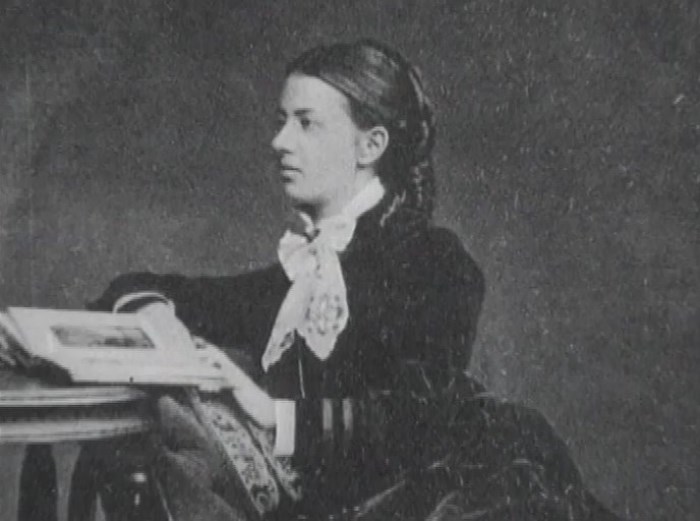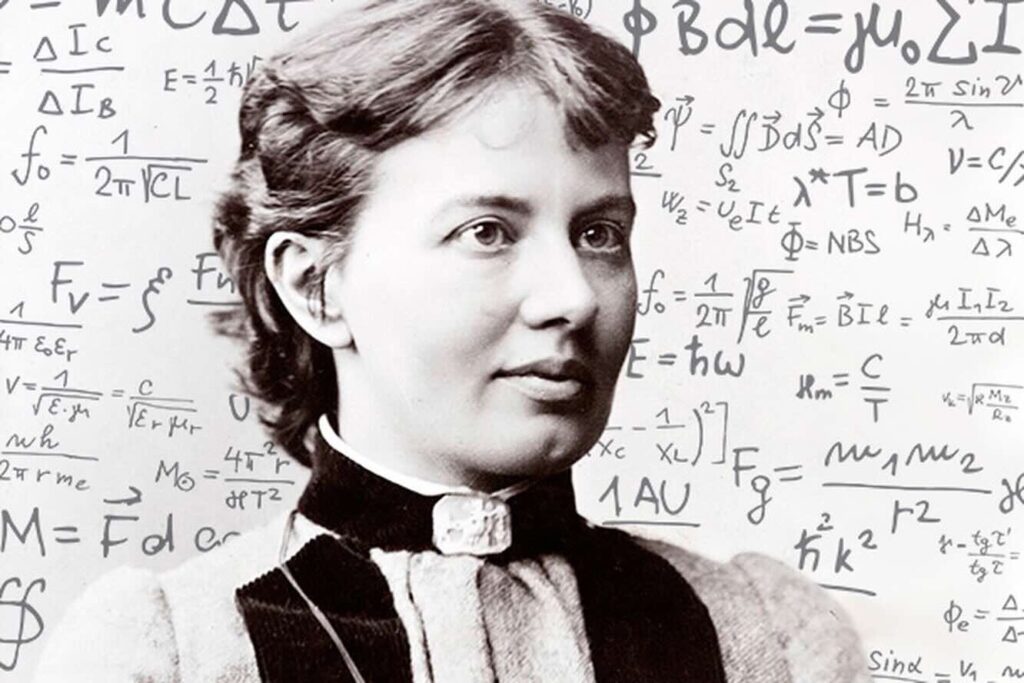The history of women in science spans centuries. They always strived for discoveries, even when society was ruled by men.
We have already written about the first female sea captain and an ethnographer who lived three years in the tundra, far from civilization. Today’s story is about a woman who transformed the world of mathematics — Sofia Kovalevskaya.
But why did she go down in history?

A Brief Biography of Sofia Kovalevskaya
Sofia Vasilyevna Korvin-Krukovskaya was born on January 3, 1850, in Moscow.
When she was 8 years old, her family moved to the Vitebsk province. One room in their house had its walls covered not with wallpaper, but with lectures on differential and integral calculus.
Young Sofia spent hours studying the mysterious symbols, which sparked her passion for mathematics.
At 16, after moving to St. Petersburg, she began taking private lessons in mathematical analysis. It came naturally to her, as if the formulas from her childhood had been imprinted in her memory for life. But the real struggle was yet to come — the fight for access to higher education.
Education in Europe
In 19th-century Russia, higher education for women was forbidden. The only option was to study abroad, but getting a foreign passport required permission from a father or husband.
Her father refused, so Sofia resorted to a bold solution: she entered into a fictitious marriage with young scholar Vladimir Kovalevsky. Eventually, however, their marriage grew into a real partnership.
Together, they went to Europe, where Sofia enrolled at the University of Heidelberg in Germany.
Since women were not allowed to attend lectures, she studied privately with Karl Weierstrass, one of the founders of modern mathematical analysis.
By the age of 24, she had earned a PhD in philosophy.
In 1883, Sofia became a member of the Moscow Mathematical Society and soon returned to Europe. With Weierstrass’s support, she became a professor at Stockholm University, a rare achievement for a woman at that time.
In 1891, a common cold turned into pneumonia, and at just 41 years old, Sofia Kovalevskaya passed away.

Her Legacy
Sofia Kovalevskaya proved to the world that not only men are capable of great discoveries.
Her research helped solve mathematical problems that had remained unresolved for centuries.
But her talent went beyond mathematics — during her short life, she also wrote several works of literature.
An interesting fact: Sofia believed that human destiny was predetermined, and even attempted to justify this theory using mathematics.
The contribution of women to science throughout history is immense. And no barrier can stop someone who is truly passionate about their work.






